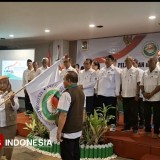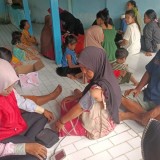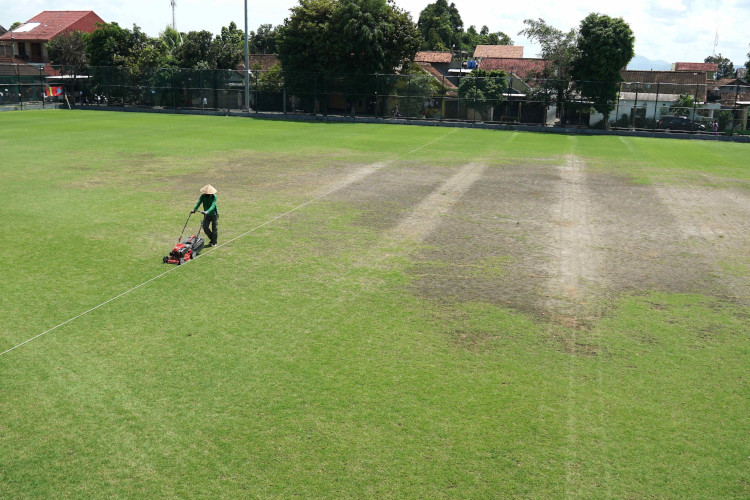TIMES SINGAPORE, PADANG – Value Added Tax (VAT) is a crucial fiscal instrument for state revenue. As an indirect tax levied on the consumption of goods and services, VAT has a broad impact on the economy, particularly in the context of national economic recovery post-pandemic. In a situation where the government is striving to accelerate economic recovery, changes in VAT policy need to be carefully considered to avoid further burdening an already strained economy.
The Indonesian government has taken various measures to recover the national economy, which was severely affected by the COVID-19 pandemic. Economic stimulus packages, lower interest rates, and various tax incentives have been introduced to boost consumption and investment.
However, in the midst of these efforts, VAT policy has also come under scrutiny. The VAT rate increase, which took effect in 2022 from 10% to 11%, has sparked discussions regarding its impact on consumer purchasing power and the sustainability of economic recovery.
The increase in VAT rates is often seen as a necessary step to boost state revenue. In the context of economic recovery, this increase can provide additional funds for the government to finance various recovery programs and infrastructure development. However, this policy also carries potential risks. In a still fragile economic condition, an increase in VAT could reduce consumer purchasing power, especially for low-income groups who are most vulnerable to rising prices of goods and services.
In the short term, the VAT increase may suppress domestic consumption, which is one of the main drivers of economic growth. If consumption declines, demand for goods and services will also decrease, which in turn could slow down economic recovery. For businesses, particularly those heavily reliant on domestic consumption, the VAT increase could mean lower sales and profits, which could ultimately reduce their ability to invest and create jobs.
However, not all impacts of this policy are negative. From a fiscal perspective, the VAT increase could help balance the state budget. Higher VAT revenues can provide fiscal space for the government to continue various economic recovery programs without increasing debt. Additionally, in the long term, if accompanied by other structural reforms, the VAT increase could strengthen Indonesia’s tax system and make it more equitable.
To mitigate the negative impacts of the VAT increase, the government needs to consider appropriate supporting policies. For instance, the government could offer incentives or tax relief for sectors most affected by the pandemic or those heavily dependent on domestic consumption. Moreover, efforts should be made to improve tax compliance and broaden the tax base so that the VAT burden is not shouldered by specific groups alone.
Effective communication of the policy to the public is also crucial. The VAT rate hike can be better received if the public understands the purpose and benefits of the policy. Therefore, transparency in managing VAT revenues and their use in supporting economic recovery programs is essential. The government must be able to convince the public that the VAT increase is part of a broader effort to strengthen the national economy and create more equitable prosperity.
In conclusion, the dynamics of VAT amid national economic recovery efforts reflect the complexity of designing effective and equitable fiscal policies. The VAT rate increase has a dual impact: on one hand, it can help balance the state budget and fund recovery programs, but on the other hand, it may suppress consumption and slow down economic recovery.
Therefore, VAT-related policies must be carefully crafted, taking into account current economic conditions and the diverse needs of the population. Only with a balanced approach can VAT become an effective tool in supporting national economic recovery. (*)
***
*) Oleh : Silmi, S.E., M.Ak., Dosen PNS Akuntansi Fakultas Ekonomi dan Bisnis, Universitas Andalas.
*)Tulisan Opini ini sepenuhnya adalah tanggungjawab penulis, tidak menjadi bagian tanggungjawab redaksi timesindonesia.co.id
*) Kopi TIMES atau rubik opini di TIMES Indonesia terbuka untuk umum. Panjang naskah maksimal 4.000 karakter atau sekitar 600 kata. Sertakan riwayat hidup singkat beserta Foto diri dan nomor telepon yang bisa dihubungi.
*) Naskah dikirim ke alamat e-mail: [email protected]
*) Redaksi berhak tidak menayangkan opini yang dikirim.
**) Ikuti berita terbaru TIMES Indonesia di Google News klik link ini dan jangan lupa di follow.
Artikel ini sebelumnya sudah tayang di TIMES Indonesia dengan judul: The Dynamics of VAT Amid National Economic Recovery Efforts
| Writer | : Hainor Rahman |
| Editor | : Hainorrahman |

























